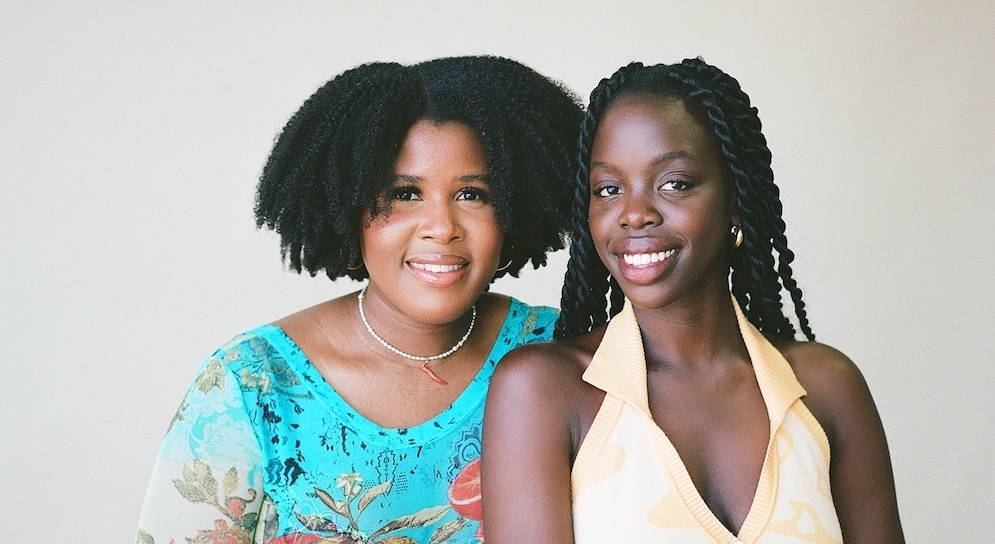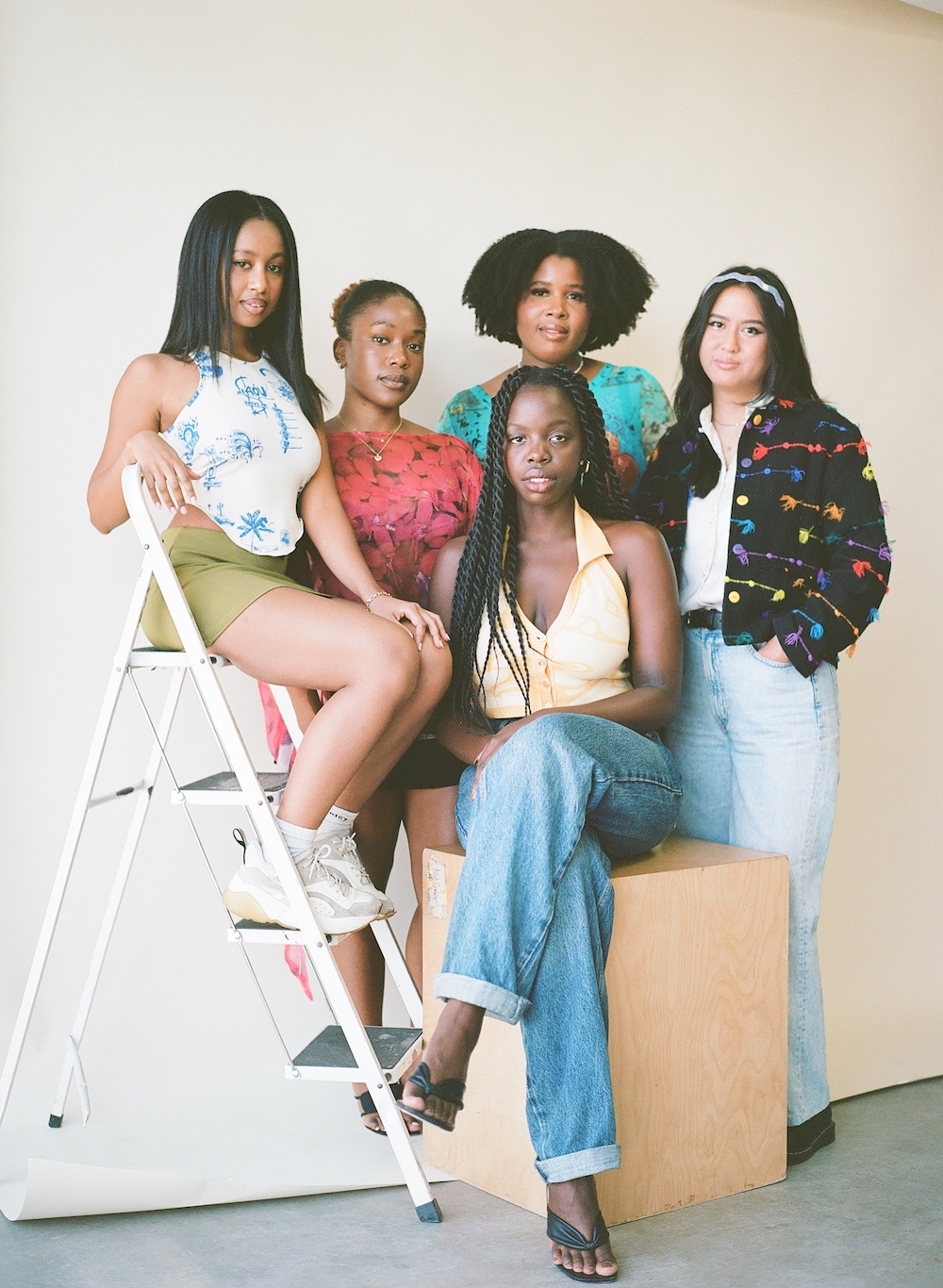
Sliq Is Out To Be A Next-Generation Ecosystem For Textured Hair Content, Products And Services
A quarter century after the launch of NaturallyCurly, Mamy Mbaye and Zainab Sanusi thought the world could use a new go-to textured hair content platform. They created Sliq, pronounced slick, to be a next-generation beauty ecosystem that will expand from content to products and a concept salon.
“When it comes to a lot of publications I follow, the textured hair section is just that a section,” says Mbaye. “The only platform we saw navigating this space is Naturally Curly, but there’s definitely a lot of room for a more youthful approach.”
Sliq’s more youthful approach accounts for the fact that there’s been a proliferation of textured haircare products and brands, but not necessarily textured haircare guidance that speaks to modern consumers. “We say hair and lifestyle because I think that there’s been a switch in how people view their hair in the sense of feeling like it’s a vehicle for self-expression less so than just something that they have to deal with,” says Mbaye. “I don’t feel that what’s currently available in the textured hair landscape solves for that in the best way.”
In 2021, Sliq kicked off with an Instagram account and website that act as community hubs and repositories of information about curly hair. The site publishes articles on topics ranging from caring for colored hair to managing chronic dandruff. The plan is to grow it to be a textured hair equivalent of the social platform Geneva.
Mbaye says, “There’s going to be a lot of work on our end to create a space where people can ask questions and find answers because, at the end of the day, the DNA of this brand is giving people the right tools to play with so that they’re no longer struggling with their hair and to actually start having fun.”
The site contains a directory of hairstylists and salons for textured hair. Introduced in September, it lists 32 stylists and salons in the United Kingdom. The directory features specialties, prices and reviews. Sanusi and Mbaye compiled it through their own searches for stylists and stylist recommendations from friends. “At the end of the day, it’s an awareness piece,” says Mbaye. “It allows more people to find them that might not have found them otherwise.” In 2020, Mbaye, who lives in the U.S., met Sanusi, who told her such a concept would be helpful in the U.K., where she lives and has had difficulty finding stylists knowledgable about textured hair.

Sliq’s next phase, a line of products, will be its most ambitious. Launching later this year, the line will include a customizable conditioner, hair serum, two gels and a mousse. The products will undergo two rounds of beta testing as well as third-party clinical testing. Sliq has raised over $75,000 via an oversubscribed family and friends round to support the launch and is pursuing an additional $500,000 via angel investors.
Expected to be the hero product, the conditioner is modeled off of products from personalized haircare brands like Function of Beauty and Prose, except it will have a base formulated specifically for textured hair. Customers will be able to mix the base with boosters to customize the conditioner to their liking. There will be a booster, for example, with a bond repair technology.
“We’re trying to emulate in a way that is more temporary so that people are able to wash it off if that’s what they’re intending to do,” says Mbaye. “That makes it so that your hair strand does not necessarily become as dependent on the product.”
She suggests Sliq’s styling products, a botanical styling gel and a strong-hold styling gel, will be its innovation standouts. She believes the gels will compete mightily with the popular Eco Styler. Mbaye says, “It’s a staple in every person who has textured hair’s arsenal, and it’s not necessarily because it’s always the best product, but because it’s one of the few that allows for some level of versatility…I respect the legacy players, but I think there’s a lot of space to play.”
Mbaye, who’s Senegalese, aims to build partnerships with farmers in West Africa in order to ethically source ingredients and give back. She says, “I’ve seen what the uplifting of certain ingredients and what K-Beauty has been able to do for the South Korean economy, and I really do hope to enact a similar change when it comes to West African agricultural spaces, especially because I’m seeing that people are extracting a lot of resources from, say, Senegal, from Nigeria, from the places that [the Sliq team] is from and very little is being returned back to the people who are doing the manual labor there.”
“I respect the legacy players, but I think there’s a lot of space to play.”
At Sliq, leading with education is paramount. It’s assembling an advisory board with medical professionals to deliver expert advice on hair or scalp issues. Another education-first piece of its business will be a concept salon offering treatments along with training sessions on styling textured hair and providing a venue for Sliq events.
“It didn’t become mandatory for stylists to learn how to style textured hair in the U.K. until last year, and that kind of has a ripple effect on what’s available to people and who they’re able to trust with their hair,” says Mbaye. “We want to make it so that it’s easier for people who want to focus on braiding, who want to focus on wigs and weaves to actually create a career path.”
The biggest goal for the salon is to cultivate a safe space for Sliq’s community. “That means allowing people to step into our world and not feel like they need to have a certain level of knowledge about their hair coming in,” says Mbaye. “There’s a lot of fearmongering on places like YouTube, and we’re trying to take that away. That’s going to happen through in-person events, but also through developing a space where people can have these conversations with each other, with us and with all the professionals.”





Leave a Reply
You must be logged in to post a comment.